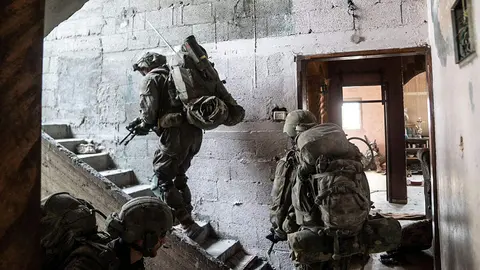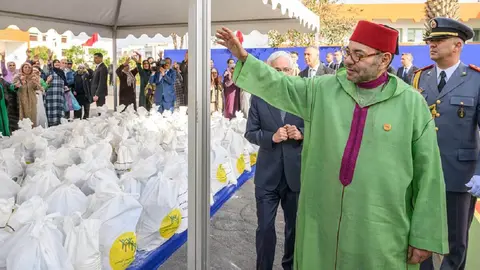Iran is the target

One at Aleppo airport and a few days later in Damascus. It is debatable whether Netanyahu is acting entirely in the service of Israel's interests in the region at the moment, or whether he is taking advantage of opportunities to try to convince himself that he needs to remain at the helm of government at this delicate time.
The fact is that Israel has taken the escalation of its strategy to end Iran's influence in the Middle East up a notch. The more or less sporadic exchange of missile attacks with the Lebanese militia Hezbollah in recent months has been dealt a substantial blow with the Israeli bombing of a missile depot and training base at an airport facility in the Syrian city of Aleppo.
Now, the target of the attack has been the Iranian Consulate in Damascus where, among others, the commander for Lebanon and Syria of the Al Quds Brigades, the Iranian Revolutionary Guard's special forces abroad, responsible for the deployment of its troops and support to pro-Iranian militias in those two countries, is confirmed dead.
Iran promises revenge, but still does not explain why and for what purpose these special forces are there, even though everyone knows. Israel does not know, does not answer, but maintains its relentless strategy against the ayatollahs' influence in the region and, for the moment, avoids a direct confrontation with Tehran while taking steps in Gaza, the West Bank, Lebanon and Syria. The US and the UK are leading the coalition responding in Yemen to Houthi attacks on ships in Red Sea waters and trying to avoid a major negative effect on international trade.
Even if covertly and indirectly, it is clear that Iran is the target.
Since the Hamas terrorist attack on Israel on 7 October, which demonstrated the true intentions of destruction by the groups sympathetic to the Ayatollahs' regime with the external collaboration of their Russian ally, the decision taken after assuming that it is not possible to coexist with terrorist groups like Hamas was to put an end to their influence and dictatorship in Gaza, where they have held two million Palestinians hostage since 2007, who, along with those in the West Bank, need to recover their institutions. And ending the chain built up in recent years by Iran's Al Quds Brigades of the Revolutionary Guard continues with Hezbollah in Lebanon, the Houthis in Yemen and pro-Iranian militias in Syria and Iraq, where the rulers will have to assess whether they are willing to confront Israel.
The Israeli government has received a new military aid package from the United States because Washington is backing the decision to crack down on pro-Iranian militias in the Middle East.
The initiative is far from easy and comes at a high cost in lives that the Israeli army is trying to minimise by deploying infantry house-to-house, tunnel-by-tunnel in hospitals, schools and other civilian buildings that represent heavy casualties in its ranks, rather than continuing with bombing raids that would wreak worse havoc.
However, civilian deaths and shortages of food, medicine, electricity and petrol creating a very serious humanitarian crisis among Palestinians is something that Israeli Prime Minister Benjamin Netanyahu should take much more account of. He should also reflect on whether he is the most appropriate leader at this time. The US abstention in the UN Security Council that allowed a resolution calling for a ceasefire to pass is a serious wake-up call for the Biden administration, which also has to look after its electoral interests in the face of a Donald Trump determined to do whatever it takes to return to the White House. Israel and the United States face a difficult and complicated objective, with public attrition evident in the high costs of their operations, but in the region, where the Abraham Accords show that Arabs and Israelis can understand each other, most are aware of the real enemy that nestles between the fanaticism of the Iranian regime and its militias spread across the region, the Muslim Brotherhood in several countries, terrorist groups and Russian moves to wear down the West and the countries of the region, not only in the Middle East, but also in Africa.
The Palestinian cause demands a treatment and solution without Hamas, with the restoration of legitimacy and governance of a genuine Palestinian National Authority with all the necessary support.



